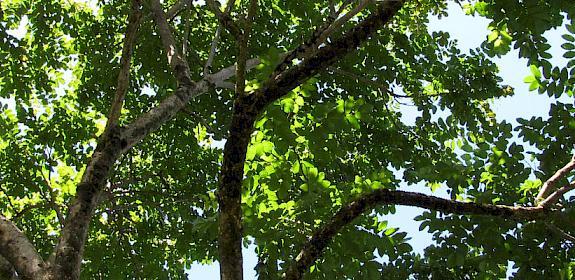Outcomes of Cameroon–China timber trade project evaluated
Yaoundé, Cameroon, March 2018—More than 30 participants met last week to evaluate the outcomes of a project aimed at reducing the illegal timber in supply chains between Cameroon and China, the world’s largest importer of timber and a key consumer, processor and re-exporter of timber products, increasingly to and from Africa.
The three-year project and workshop were funded by the UK Department for International Development (DFID) (now FCDO) and aimed to increase compliance with timber harvest and trade controls along the supply chain from Cameroon to China and the European Union.
Those attending included representatives of the Ministry of Forestry and Wildlife (MINFOF), Cameroon Customs, the Regional Intelligence and Liaison Office of the World Customs Organization for Central Africa (RILO-CA), International NGOs, civil society organizations and local community representatives.
Key outcomes of the project they discussed included: commitments made by Chinese businesses to respect legality definitions and source timber from sustainably managed forests in Cameroon; new tools to enhance timber legality adherence including a timber trade legality manual and handbook; and increased engagement and improved capacity of local communities to engage and benefit from legal and sustainable timber trade.
Overall, there was very positive engagement between timber producers in Cameroon and timber traders in China thanks to the long-term engagement, which helped build trust and mutual understanding
Dr Paulinus Ngeh, TRAFFIC’s Regional Director for Central Africa
China makes a significant contribution to Cameroon’s forestry sector and economic growth: some 60% of all Cameroon timber exports currently go to China and Chinese investments in Cameroon’s forestry sector increased exponentially between 2004 and 2016. China consumed some 550 million m3 of timber and its by-products in 2015, and wood imports are extrapolated to reach almost 100 million m3 by 2018.
According to Mrs Hortense Batindek, the Project Technical Assistant and representative of the Network of Forestry and Environmental Training Institutions of Central Africa (French acronym RIFFEAC[1]): “The work done in developing the various training tools on timber legality definitions for use by Chinese timber operators and other actors in Cameroon should be used to build the capacity of Forest Law Enforcement Officers both in the field and in training institutions.”




